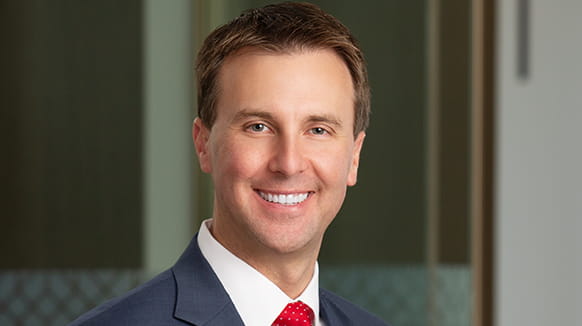Deputy Attorney General Monaco announced new policy measures that the Department of Justice (“DOJ”) will be implementing in an effort to encourage corporate cooperation in criminal enforcement matters. The new DOJ policies are intended to increase the efficiency and transparency of enforcement investigations, encourage individual and corporate accountability, incentivize voluntary self-disclosure, and urge companies to comply with the Government’s requests swiftly and proactively. The message to corporations included a “mix of incentives and deterrence” to persuade companies to cooperate with investigations while also empowering prosecutors, and therefore warning corporate executives, that a failure to cooperate will result in harsher consequences and greater scrutiny.
Monaco outlined these policies in greater detail in a speech and corresponding memorandum to prosecutors, policymakers, corporate officials, and academics at the New York University (“NYU”) Program on Corporate Compliance and Enforcement on September 15, 2022. These new policies seek to expand and clarify the vague guidance announced in a speech last October to the American Bar Association’s National Institute on White Collar Crime where Monaco unveiled a tougher stance on enforcement from the DOJ.
Companies should expect that DOJ will move faster and expect corporations to do the same in corporate investigations. Monaco stressed that DOJ would “need to do more and move faster” to accomplish the Department’s first priority of holding individual wrongdoers accountable for committing and profiting from corporate crime. To do that, DOJ will require cooperating companies to come forward with important evidence more quickly, and endeavor to complete investigations into individuals prior to or simultaneously with entering a resolution against the corporation. DOJ’s expectation is that a company’s “first reaction” in discovering evidence or hot documents should be to notify the prosecutors. The new policy was vague as to what exactly would meet this accelerated timeline but was clear that any undue or intentional delay in producing information or documents “will not be tolerated” and will result in the reduction or denial of cooperation credit.
The policy also includes new guidance on the factors that will be considered when assessing corporate accountability, including: (1) history of misconduct, (2) voluntary self-disclosure, (3) quality of cooperation, and (4) internal compliance programs.
- History of Misconduct. DOJ will disfavor multiple, successive non-prosecution or deferred prosecution agreements with the same company and increase scrutiny into conduct that involves the same personnel or underlying causes as prior misconduct. The older the conduct, however, the less relevant it will be.
- Self Disclosure. DOJ will not seek a guilty plea when a company has voluntarily self-disclosed, cooperated, and remediated misconduct. DOJ will require every company to have a formal, documented policy and program that incentivizes voluntary self-disclosure of misconduct. Monaco stressed the business-case for self-disclosure highlighting that doing so can help a company by avoiding expensive penalties and fines, avoiding the reputational harm of pleading guilty, and reduce the risk of collateral consequences like suspension and debarment in relevant industries.
- Cooperation. DOJ will focus on the timeliness of cooperation, focusing scrutiny on how quickly and proactively companies are pointing DOJ to critical information or evidence.
- Corporate Compliance Program. Most notably, DOJ intends to assess a corporation’s internal compliance program and policies when evaluating cooperation and any resolution, focusing particularly on compensation structures and the use of personal devices.
a. Compensation. Monaco has asked the Criminal Division to develop more specific guidance by the end of the year regarding how to reward corporations that use compensation-related measures to hold accountable individuals financially who contribute to criminal misconduct. DOJ wants to encourage compensation systems that clearly and effectively impose financial penalties for misconduct because they deter risky behavior and foster a culture of compliance within a corporation. DOJ will assess internal financial incentives and penalties for employees who fail to adhere with compliance standards but did not clarify the weight or credit a company’s policies would be given in connection with an investigation. For instance, DOJ will look to see if a corporation has compensation clawback provisions or the ability to escrow compensation during an investigation. DOJ is also encouraging corporations to include compensation systems with financial incentives for “compliance-promoting behavior.” DOJ will consider whether a corporation uses or has used non-disclosure or non-disparagement provisions in compensation agreements, severance agreements, or other financial arrangements so as to inhibit the public disclosure of criminal misconduct by the corporation or its employees when evaluating a company’s culture of compliance.
b. Personal Devices and Third-Party Applications. DOJ is also going to look at a corporation’s policies concerning personal devices and third-party messaging applications. The prevalence of personal devices and different applications makes it harder for DOJ to gather relevant evidence or for a corporation to ensure all business-related data is preserved, collected, and produced. DOJ intends to scrutinize the policies regarding such devices when assessing cooperation. Corporations should look closely now at what policies are in place, provide clear training to employees, and enforce the policies when violations are identified.
The new policies rolled out by Monaco make it clear that DOJ has no intention of relaxing the standards that corporations need to meet while under investigation for alleged corporate wrongdoing. DOJ is clearly calling on corporations to be more proactive in addressing issues in a company’s culture of compliance and to cooperate swiftly and fully. Haynes Boone has extensive experience in defending clients and shepherding corporations and individuals through the investigation process as efficiently and effectively as possible.
If you have any questions or would like to discuss these issues further, please visit the Government Enforcement and Litigation page or contact one of the attorneys below.








